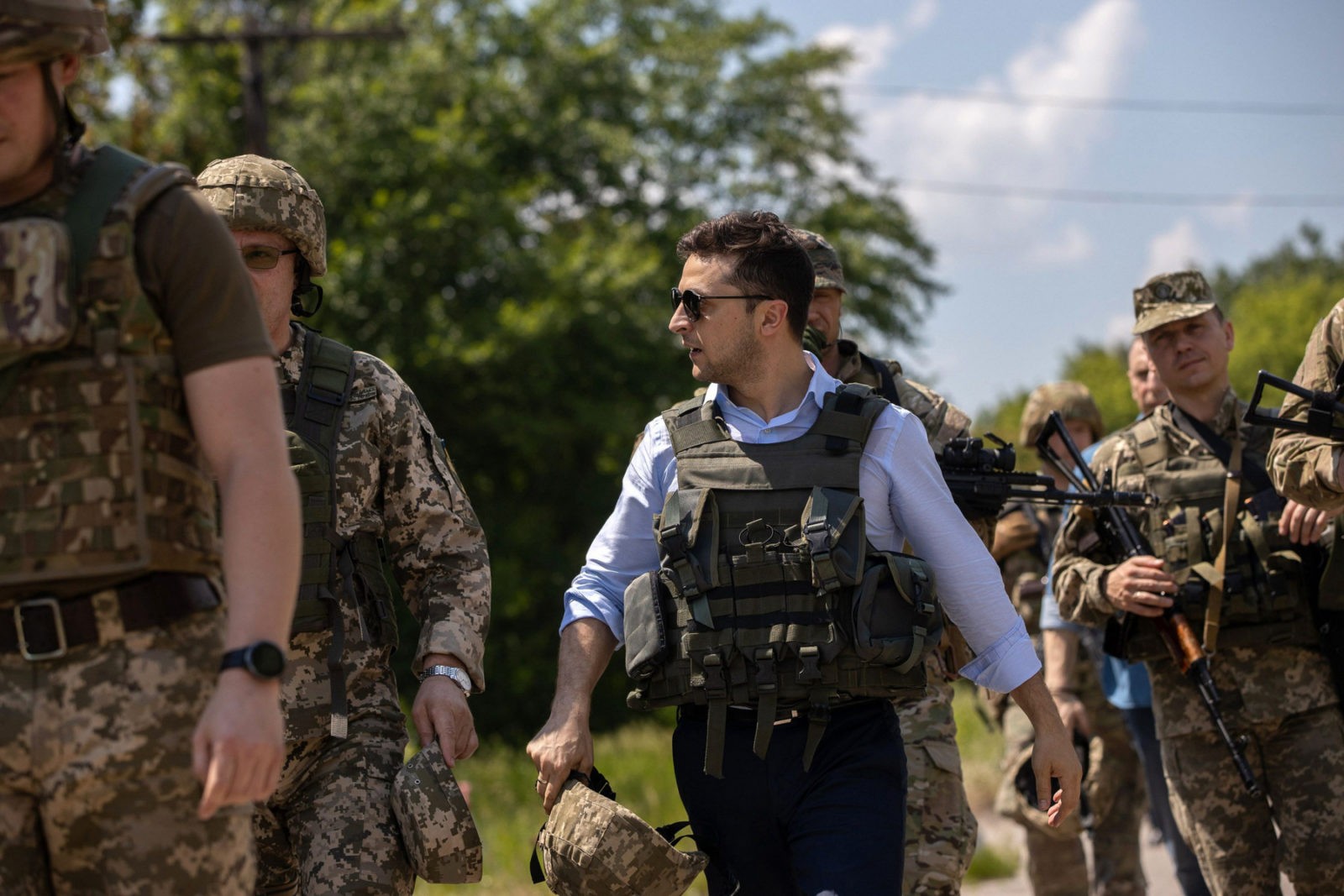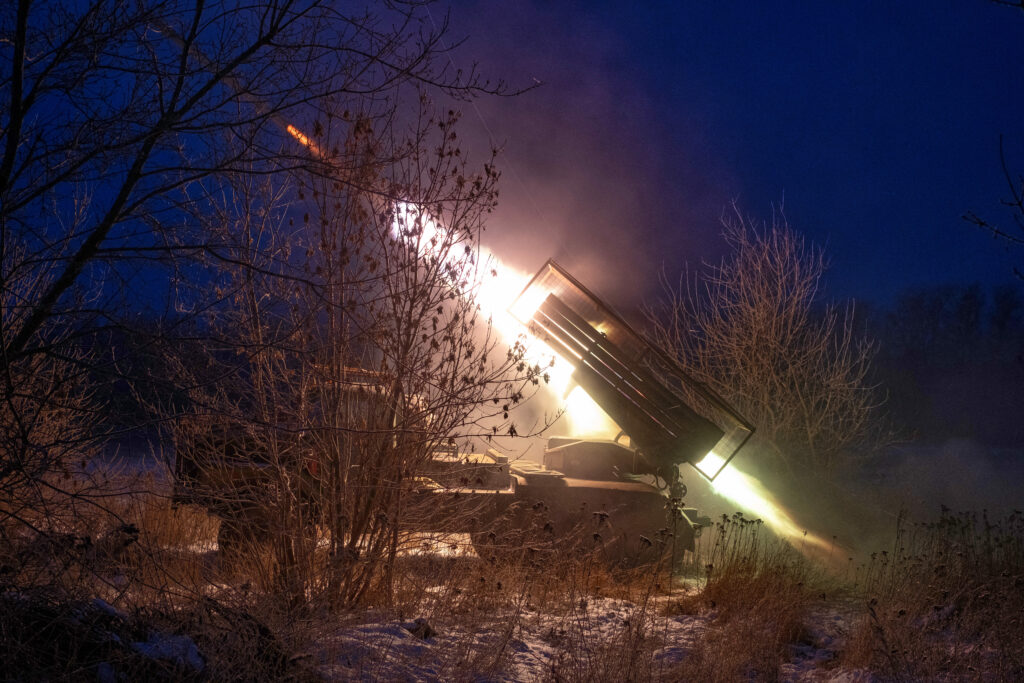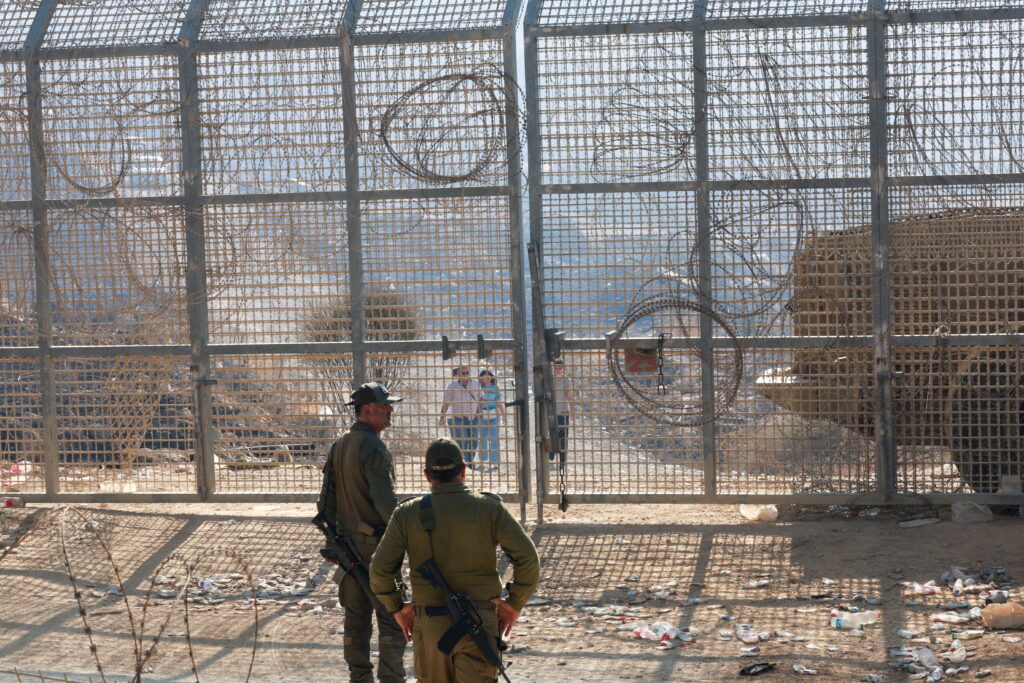In his inauguration address on 20 May, Ukraine’s newly elected president, Volodymyr Zelensky, stated, ‘it is not us who started the war, but it is we who will have to finish it’. Here, though not for the first time, he displayed a streak of boldness that he might come to regret. Of course, he was not the first. On 26 May 2014, one day after his own election, Petro Poroshenko stated that the then Anti-Terrorist Operation (ATO) should end ‘within hours, not months’. That precedent in rashness does not diminish the challenge that the new president faces.
More Ukrainian soldiers have died in the four and a half years since the Minsk-II accord ‘froze’ the conflict than in the months before it. Moreover, helped by the exclusion of the maritime dimension from the accord, Russia has expanded the war to the Black Sea. Even here, it has not been constrained by legality. In the year before Zelensky’s election, Russia first contravened and then effectively shredded its bilateral (2003) Treaty on Cooperation in the Use of the Azov Sea and Kerch Strait, first by opening the Crimean Bridge whose design bars transit of large hulled merchant vessels, then by introducing onerous inspections of commercial ships, and finally on 25 November, by impounding three Ukrainian naval vessels exercising their right of passage and incarcerating their crews.
Thus far, Moscow has been at pains to demonstrate that it regards Zelensky’s election with total indifference. Three days before his all too predictable victory, Prime Minister Medvedev announced swingeing restrictions on energy exports to Ukraine. On 24 April, Putin introduced an ‘accelerated procedure’ for Russian citizenship in Donbas and then suggested that a ‘common citizenship’ would be to the advantage of both countries. Whoever governs Ukraine, Moscow is determined to show that it can apply pressure and select the pressure points at will.
This incomplete inventory of Russian activity makes three additional points that, in conditions of ‘Donbas fatigue’, are often overlooked. First, the ‘war in Donbas’ and the war against Ukraine are not synonymous. The latter is a holistic, continuous and multi-faceted enterprise, affording ample scope for ensuring that a retreat on one front can be offset by an advance on another. Against this background, we should not be surprised if the latest and much heralded Donbas cease-fire beginning 21 July is of ephemeral importance.
Second, where Russia cannot use the law against others, it will invent its own legality. In the Black Sea and the Crimean peninsula it has done both. It has imposed unilateral restrictions on third parties in strict accordance with its own legislation but in disregard of the UN Convention on the Law of the Sea (UNCLOS) and the Azov state treaty. When the third parties fail to challenge such restrictions, their prudence or passivity is presented as recognition of the new status quo. Thus, Ukraine’s ill-judged compliance in July 2018 with Russia’s notification requirements for transit through the Kerch Strait redoubled the force of Russia’s indictment when its naval vessels did not comply with these requirements in November. Worse, it stoked criticism beyond Russia that it had behaved ‘provocatively’, whereas a consistent and principled position by Ukraine from the start might have rendered that charge difficult to make.
On 25 May the International Tribunal of the Law of the Sea (ITLOS) upheld Ukraine’s case against Russia and demanded that the latter immediately release Ukraine’s incarcerated sailors. But that ruling is less reassuring than it appears. Because ‘military activity’ is exempt from the provisions of UNCLOS, ‘the ITLOS order accepts without analysis that Ukraine and Russia are interacting during a time of peace’; therefore, according to ITLOS, Russia was carrying out ‘a law enforcement operation rather than a military operation’. This is exactly what Russia maintains and Ukraine contests. Moreover, the judgement ‘orders both Parties to refrain from taking any action which might aggravate or extend the dispute’. This provision could prove especially problematic for Ukraine. Not only does it make it difficult to justify its detention on 24 July of the tanker that blocked passage to the Sea of Azov last November. It could be used to reproach Ukraine for any future naval operations that might violate Russian criminal law. Russia’s refusal to recognise ITLOS jurisdiction will not prevent it from using these points to its advantage.
Third, the conflict in Ukraine has significant implications for others. Russia’s annexation of Crimea has profoundly altered the strategic environment. Its abrupt closure of over one quarter of the Black Sea for ‘training exercises’ between 24 July to 19 August, ‘effectively clos[ing] off the customary and advisable international shipping routes to Bulgaria, Georgia, Romania and Ukraine’, is but the latest example of its ‘creeping de facto annexation’. That process also encompasses the Ukrainian Black Sea shelf (under guard of missile patrol boats) and now extends to the Odessa gas field. Crimea’s role in the ‘Syrian express’ and the impact upon Turkey are subjects in themselves. The conflict also has added to Putin’s pressures on Belarus and the worrying nexus between Putin’s Lukashenka problem, his own domestic problem and the West’s growing interest in Belarus.
Against this background, the remarkable thing is not that Zelensky is inexperienced in matters of national security, but that he seems relatively unperturbed by the fact. His announced and likely appointments in the national security domain range from people of outstanding quality and substance, to the mendacious and conniving, to rank amateurs. The main question, though, is whether policy will be made between the President and these individuals or whether the latter will be expected to front for decisions made behind closed doors by the President and his office cabal. The authority of Andrii Bohdan, Head of the Presidential Administration (now retitled ‘Office’), a figure as deeply trusted by Zelensky as he is distrusted by Washington, is problematic in itself. So is the fact that Yanukovych’s former placemen now consider it safe to return to Ukraine and restore their channels of influence there.
In part for these reasons, it is excruciatingly difficult to discern what Zelensky’s policy is. His public statements about Russia, its ‘aggression’ and its need to leave ‘all the land it has occupied’ are ‘unshakeable and uncompromising’, as is his insistence that ‘no agreement on de-escalation in Donbas can be sealed at the cost of Crimea and Ukrainian citizens who are forced to remain in occupied Crimea’. His rhetorical defiance of Putin is rousing and without precedent. [He has urged the EU to intensify sanctions and the United States to expand its military assistance. Yet on the subject of NATO membership, he is plainly ambivalent, and Bogdan is outwardly grudging.]
Whatever devotion Zelensky has to these issues, it is clearly the issue of corruption — or his own conception of it — that consumes him body and soul. This explains his appointment of Oleksandr Danylyuk (a former Economics Minister too reformist for Poroshenko’s liking) as Secretary of the National Security and Defence Council (RNBO), which will now concentrate its attention on fighting corruption and rationalising the structure of the overblown and convoluted state. It also explains the astonishing appointment of his childhood friend, business partner and campaign chief, Ivan Bakanov as Acting Head and First Deputy of the SBU in charge of combating corruption. Although these would not be misconceived priorities in idyllic times, for these agencies at least, they are grossly misconceived in time of war. The main responsibility of the RNBO is to coordinate the defence and national security apparatus of the state. The main priorities of the SBU must be counter-intelligence and the protection of the state from sabotage, subversion and enemy penetration, not least of the SBU itself. The author has long argued that corruption is a national security issue. But an anti-corruption policy cannot substitute for a national security policy.
To the task at hand, Zelensky brings fresh and inspiring talents. His rehabilitation of the Russian language, galling as it is for much of the Ukrainian Hromada in North America, provides him with a tremendous reserve of soft power in Ukraine’s southeast, its occupied territories and possibly in Russia itself. But what if the garant in the Kremlin does not care? Russia might be winning or losing in Ukraine and on the global stage. But one needs to understand the Kremlin’s tenacity and its message: whether you oppose us, ignore us, shame us or appease us, we will not change our policy on anything. To combat Russia successfully, Zelensky will have to convert his gifts and Ukraine’s innate strengths into useable power. He has yet to understand this.
Understandably, the Zelensky house is only half built. An unsettling ambiguity hangs over his actions, his capacity and his purpose, and it remains to be seen whether and when these anxieties will be dispelled.










